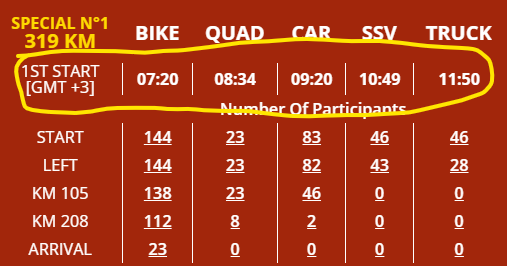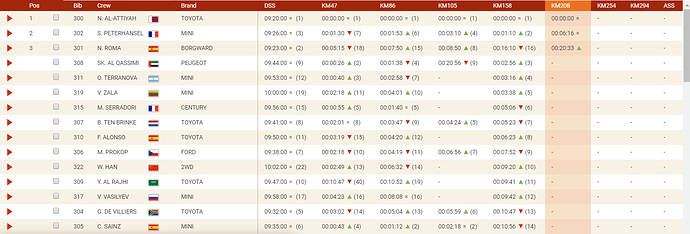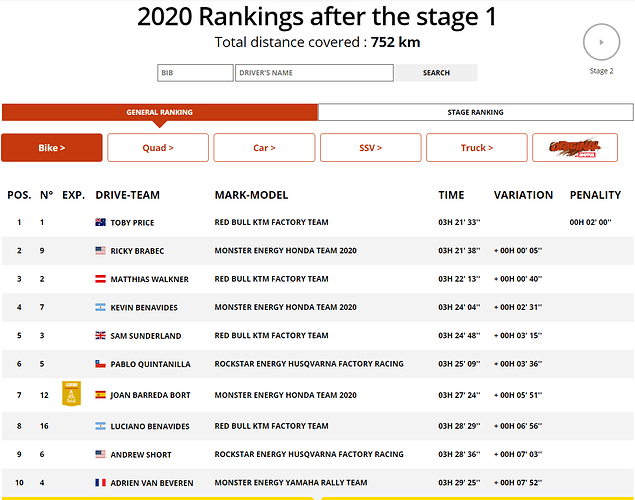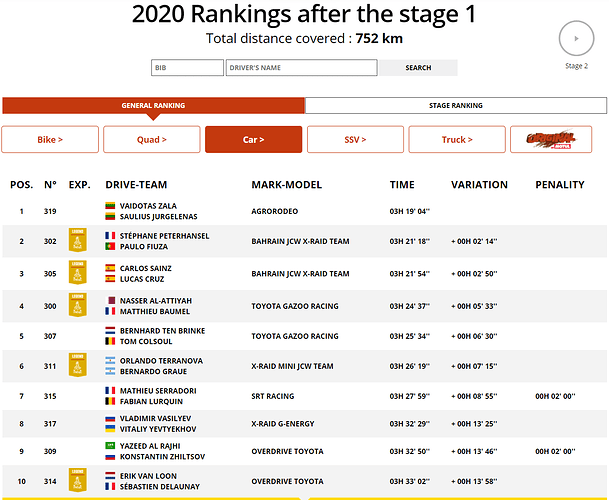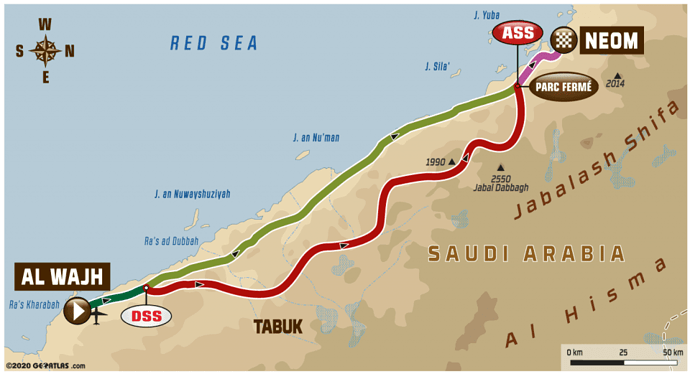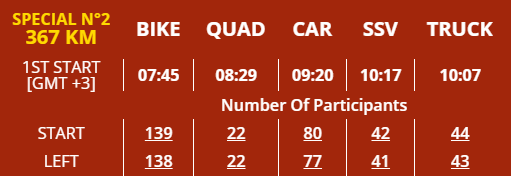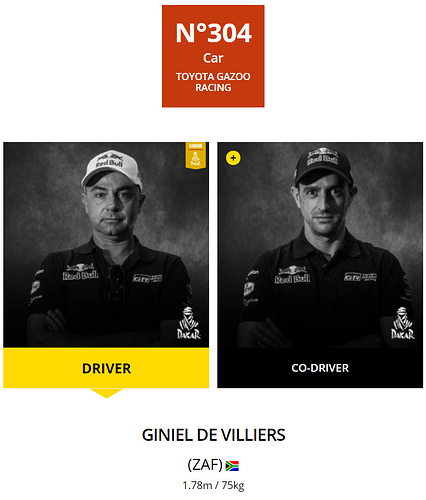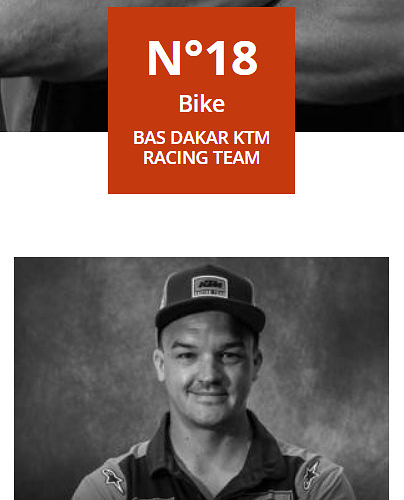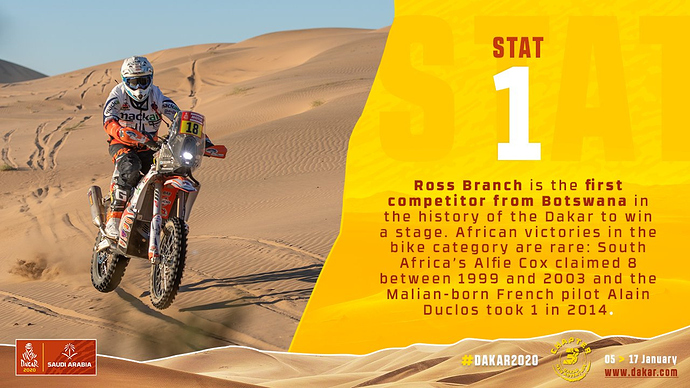The Dakar Rally Thread
Prompted by discussions over in the Formula 1 thread about the recent confirmation that Fernando Alonso will drive a South African prepared Gazoo Racing Toyota Hilux in the 2020 Dakar Rally, @Oltman and I thought it would be a good idea to start a separate thread dedicated to news and discussion around the world’s toughest offroad event.
What is the Dakar Rally?
For the unenlightened…
The Dakar Rally (or simply “The Dakar”; formerly known as the “Paris–Dakar Rally”) is an annual rally raid organised by the Amaury Sport Organisation. Most events since the inception in 1978 were from Paris, France, to Dakar, Senegal, but due to security threats in Mauritania, which led to the cancellation of the 2008 rally, races from 2009 until 2019 have been held in South America. From 2020, the race will be run in and around Saudi Arabia for at least the next 10 years.
The race is open to amateur and professional entries, amateurs typically making up about eighty percent of the participants. There are 5 competitive vehicle categories contested currently: Motorbikes, Cars, Quads, UTVs (Side by Sides/SxS), and Trucks
The race is an off-road endurance event. The terrain that the competitors traverse is much tougher than that used in conventional rallying, and the vehicles used are true off-road vehicles rather than modified on-road vehicles. Most of the competitive special sections are off-road, crossing dunes, mud, camel grass, rocks, and erg among others. The distances of each stage covered vary from short distances up to 800–900 kilometres per day.
A Brief History of the Dakar Rally
The race originated in December 1977, a year after Thierry Sabine got lost in the Ténéré desert whilst competing in the Abidjan-Nice rally and decided that the desert would be a good location for a regular rally.
182 vehicles took the start of the inaugural rally in Paris, with 74 surviving the 10,000-kilometre trip to the Senegalese capital of Dakar. Cyril Neveu holds the distinction of being the event’s first winner, riding a Yamaha motorcycle. The event rapidly grew in popularity, with 216 vehicles taking the start in 1980 and 291 in 1981.
Neveu won the event for a second time in 1980, Hubert Auriol taking honours in 1981 for BMW. By this stage, the rally had already begun to attract the participation of famous names from elsewhere in motorsport, such as Henri Pescarolo and Jacky Ickx.
Now boasting 382 competitors, more than double the amount that took the start in 1979, Neveu won the event for a third time in 1982, this time riding a Honda motorcycle, while victory in the car class went to the Marreau brothers, driving a privately entered Renault 20, whose buccaneering exploits seemed to perfectly capture the spirit of the early years of the rally. Auriol captured his second bikes class victory in 1983, the first year that Japanese manufacturer Mitsubishi competed in the rally, beginning an association that would last all the way until 2009.
https://somosdakar.com/wp-content/uploads/2017/03/ae38abd9a32e35095e45aa98c1639c53.jpg
At the behest of 1983 car class winner Jacky Ickx, Porsche entered the Dakar in 1984, with the total number of entries now at 427. The German marque won the event at their first attempt courtesy of René Metge, who had previously won in the car category in 1981, whilst Ickx finished sixth. Gaston Rahier meanwhile continued BMW’s success in the motorcycle category with back-to-back wins in 1984 and 1985, the year of Mitsubishi’s first victory of 12 in the car category, Patrick Zaniroli taking the spoils.
The 1986 event, won by Metge and Neveu, was marred by the death of event founder Sabine in a helicopter crash in Mali, his father Gilbert taking over organisation of the rally. The race continued to be held in Africa annually in early January of each year until 2008.
The 2008 Dakar Rally was cancelled days before it was due to start due to security concerns after al-Qaeda’s murder of four French tourists on Christmas Eve in December 2007 in Mauritania (a country in which the rally spent eight days), various accusations against the rally calling it “neo-colonialist”, and al-Qaeda’s accusations against Mauritania calling it a supporter of “crusaders, apostates and infidels”.

The French-based Amaury Sport Organisation in charge of the 6,000-kilometre rally said in a statement that they had been advised by the French government to cancel the race, which had been due to begin on 5 January 2008 from Lisbon. They said direct threats had also been made against the event by al-Qaeda related organisations.
Omar Osama bin Laden, the son of Osama bin Laden, attracted news coverage in 2008 by promoting himself as an “ambassador of peace” and proposing a 3,000-mile horse race across North Africa as a replacement to the Dakar Rally, with sponsors’ money going to support child victims of war, saying “I heard the rally was stopped because of al-Qaida. I don’t think they are going to stop me.”
From the 2009 edition the Rally moved to South America, where it has been run since. With some irony, South Africa’s own Giniel de Villiers won the first Dakar Rally to be run outside of Africa.
https://image.redbull.com/rbcom/052/2019-03-27/f3f67696-461e-4652-b042-004cee7c9db2/0012/0/0/0/2359/3539/1050/1/giniel-de-villiers-dakar-trophy-2009.jpg
The Dakar Rally will move to Saudi Arabia in 2020 after 11 races in South America and 30 others in Africa. This would be the first edition of the race to take place in Asia and the second in a row to be held entirely in one country. (The 2019 Rally was held in one country, Peru, for the first time, which posed a risk for the organizers since any problem could have forced them to suspend the race.)
Dakar Rally 2020, which is scheduled to start in the port city of Jeddah in western Saudi Arabia on January 5 and eventually finish in Qiddiya southwest of the Saudi capital Riyadh on January 17 after having swept across the Kingdom through 10 challenging stages.
Dakar Rally Records
- Highest number of entrants (including 224 assistance cars and trucks): 688 (2005).
- Highest number of entrants (only competitors): 603 (1988)
- Highest number of finishers: 301 (2013)
- Highest percentage of entrants finishing: 69.18% (2017)
- Lowest number of entrants: 153 (1993)
- Lowest number of finishers: 67 (1993)
- Lowest percentage of entrants finishing: 20.58% (1986)
- Longest rally: 15,000 km/9,320 miles (1986)
- Shortest rally: 6263 km/3,892 miles (1981)
- Most successful vehicle model: Mitsubishi Pajero Evolution with 14 wins
- Most podiums without a win: Yoshimasa Sugawara with 7 podiums (6x Silver and 1x Bronze)
- Most entries: Yoshimasa Sugawara with 35 entries
- Most consecutive entries: Yoshimasa Sugawara with 35 entries (1983 – 2019)
- Most finishes: Yoshimasa Sugawara with 29 finishes
- Most consecutive finishes: Yoshimasa Sugawara with 20 (1989 – 2009)
- Most classes competed in: Yoshimasa Sugawara in 3 classes (bike, car, truck]
- Oldest competitor: Marcel Hugueny at 81 years (1995)
- Youngest competitor: Mitchel van den Brink at 16 years, ? months, ? days (2019)
Dakar 2020
The grandiose and varied landscapes of the 30th country to host the Dakar have all the ingredients for a well-rounded route. The same diversity characterises the three cities that will mark the decisive phases of the rally. Jeddah symbolises the country’s deep historical roots, while the capital Riyadh evokes the power of a kingdom resolutely turned towards the future, as exemplified by the Qiddiya project.
Start - Jeddah
2 TO 5 JANUARY: SCRUTINEERING AND START
Home to 3.5 million people, the second-largest city in the country is also its economic heart thanks to its commercial port on the Red Sea, which goes back to the 7th century. Just for once, the gateway to the holy cities of Mecca and Medina will also be a launch pad for the drivers, riders and crews of the Dakar. King Fahd’s Fountain, which ejects water at a speed of 375 km/h, and Jeddah Tower, which will soon reach a height of 1,001 m, will inspire the competitors with grandiose ideas and a burning ambition.
Rest - Riyadh
REST DAY
The sprawling orchards that gave the city its name («gardens» in Arabic) in the 18th century have mostly given way to an urban area extending over more than 1,500 km2 (versus 105 km2 for Paris and 203 km2 for Buenos Aires) and home to over six million people. The demographic growth of the capital since the 1970s has gone hand in hand with the building of striking skyscrapers born from revolutionary architectural ideas, including the 267 m Al Faisaliyah Centre, 302 m Kingdom Centre and 307 m Burj Rafal.
Finish - Al Qiddiya
17 JANUARY: FINISH AND FINAL PODIUM
The Dakar will be the first world-class sporting event held in Al Qiddiya, a city whose foundation stone was laid in 2018 and which will be focused on entertainment and culture. The vast complex, located about 40 kilometres from Riyadh, will include attractions such as a theme and amusement park, world-class sports facilities and multidisciplinary art centres. It is set to open to the public in 2022.
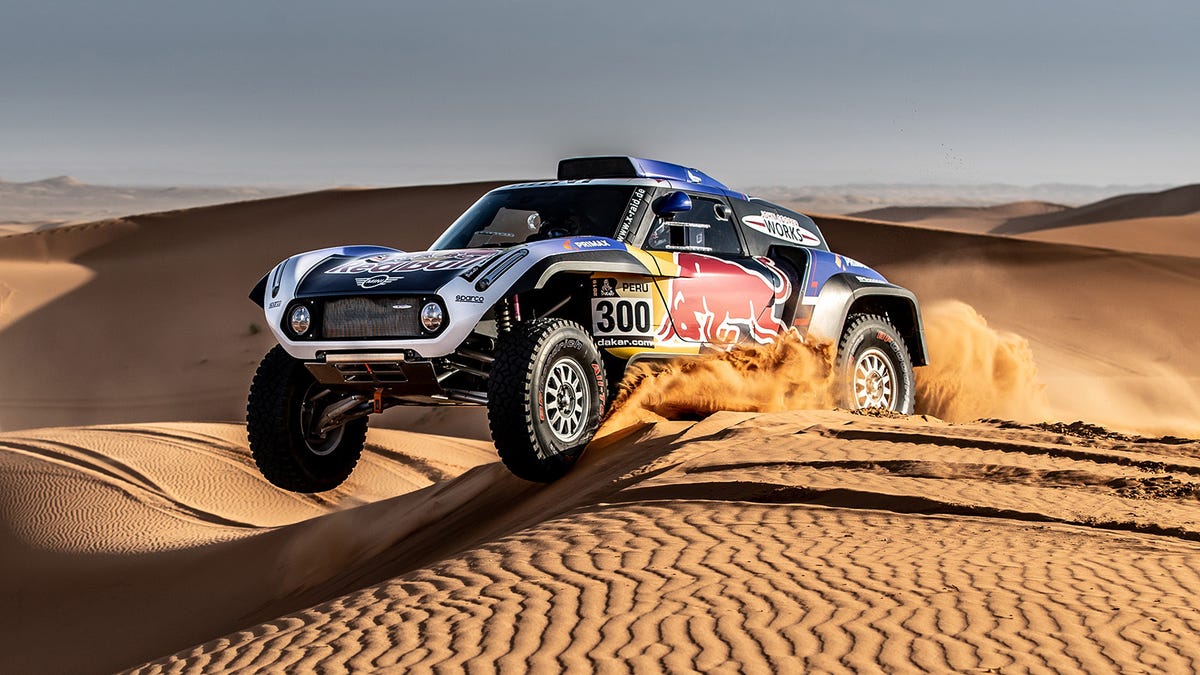
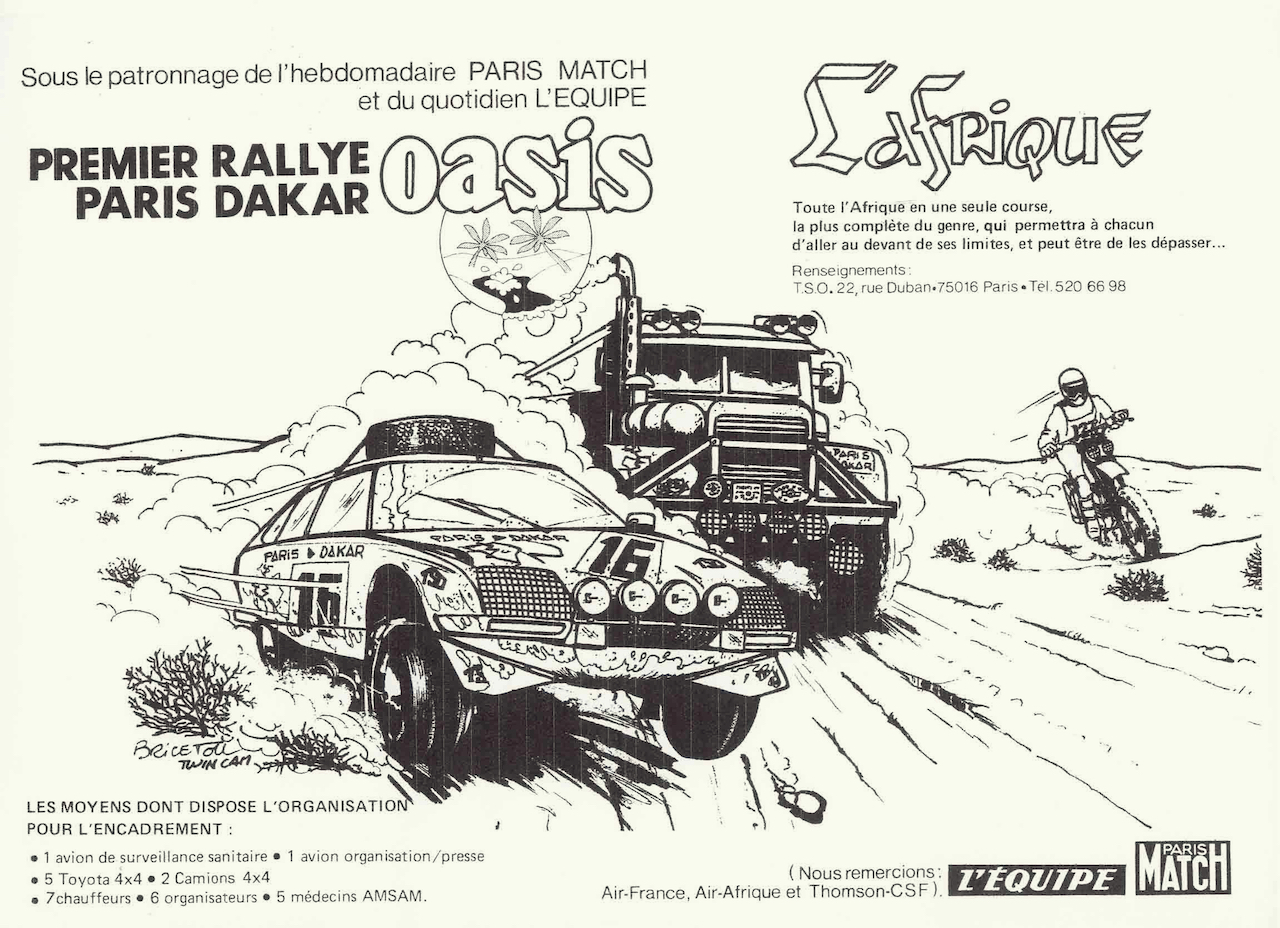
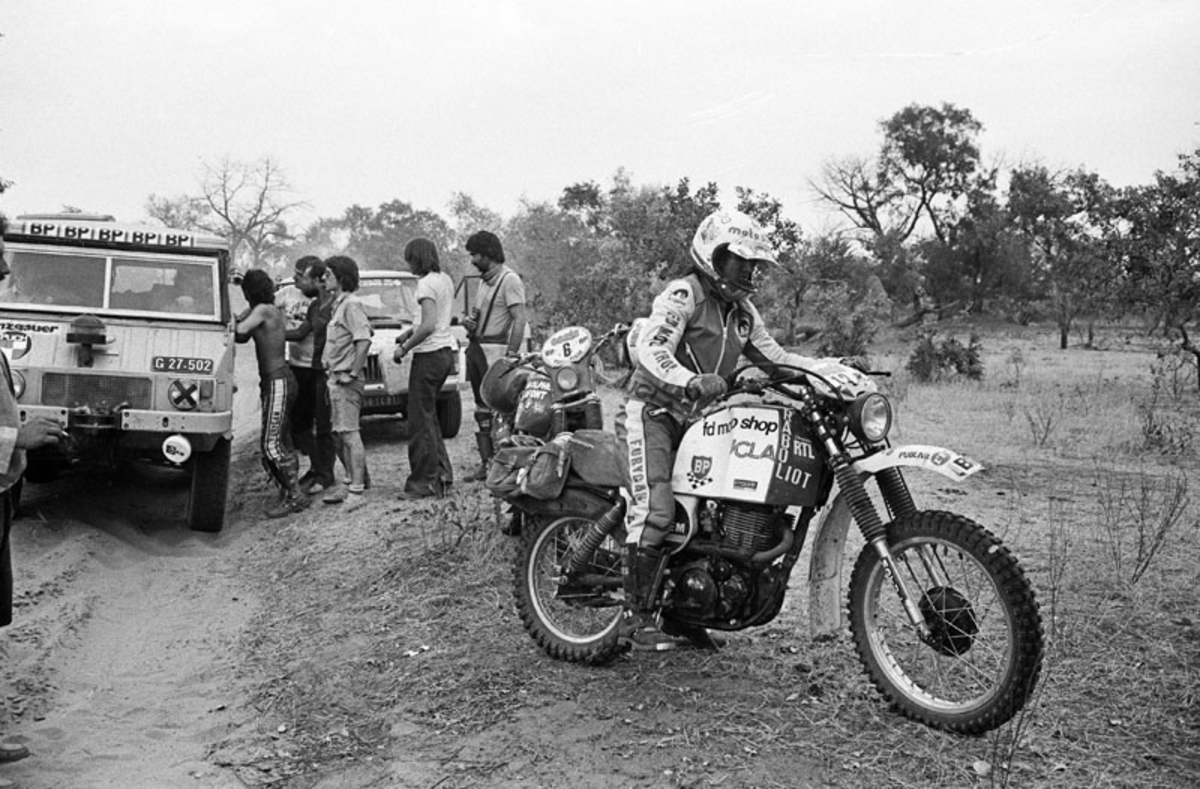
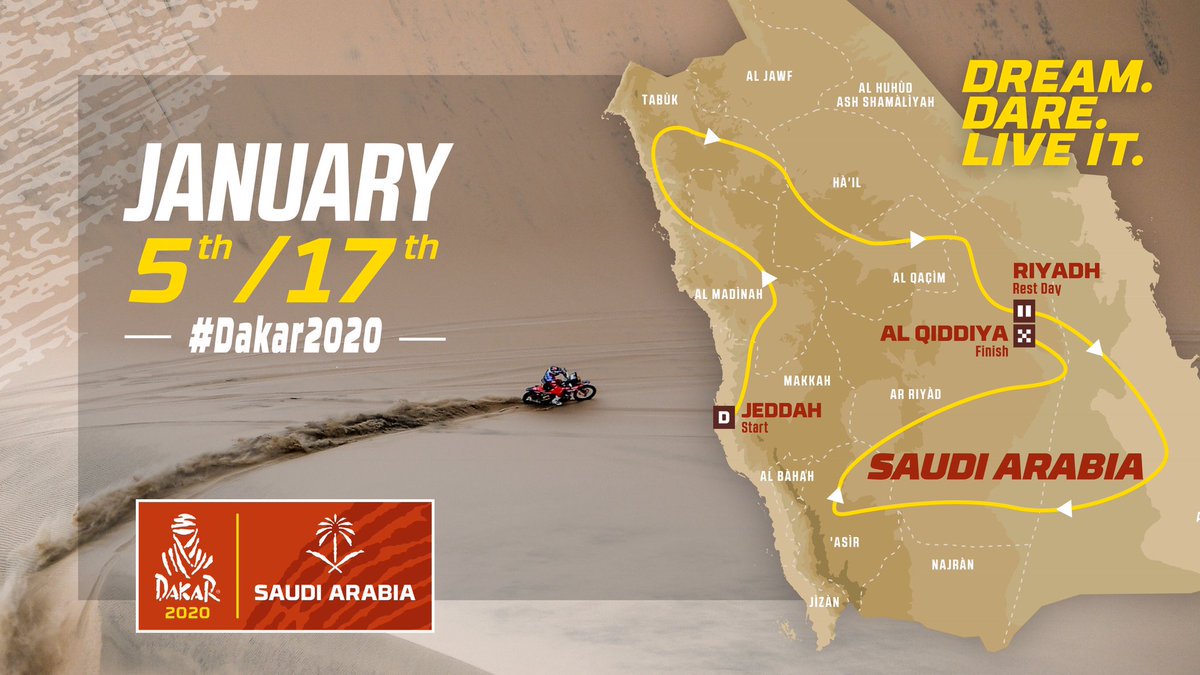
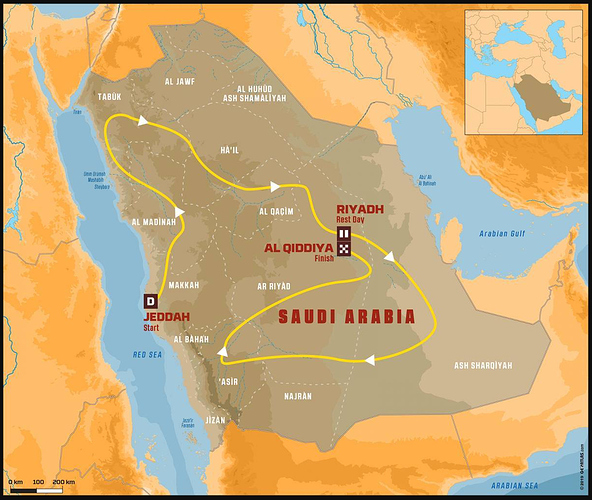
 great read and, as always, very informative! Thanks G-man
great read and, as always, very informative! Thanks G-man



